- Home
- Tony Parsons
Long Gone the Corroboree
Long Gone the Corroboree Read online
Long Gone the Corroboree
Tony Parsons
Austin Macauley Publishers
Long Gone the Corroboree
About the Author
About the Book
Copyright Information
Acknowledgements
Author’s Note
Prologue
Chapter 1
Chapter Two
Chapter Three
Chapter Four
Chapter Five
Chapter Six
Chapter Seven
Chapter Eight
Chapter Nine
Chapter Ten
Chapter Eleven
Chapter Twelve
Chapter Thirteen
Chapter Fourteen
Chapter Fifteen
Chapter Sixteen
Chapter Seventeen
Chapter Eighteen
Chapter Nineteen
Chapter Twenty
Chapter Twenty-one
Chapter Twenty-Two
Chapter Twenty-Three
Chapter Twenty-Four
About the Author
Tony Parsons is a best-selling Australian author of seven novels and five non-fiction titles, notably ‘The Call of the High Country’ books. He was awarded the Order of Australia medal in 1992 for his contribution to the propagation of the Australian kelpie. He is also an agricultural consultant and renowned breeder of dogs, sheep and poultry.
About the Book
Sailing north along the Australian East Coast in 1770, Captain James Cook spied eleven mysterious peaks that he named the Glasshouse Mountains after the glass furnaces of his native Yorkshire. Unknown to Cook, the mysterious landforms were culturally significant to the traditional owners of the land, the Gubbi Gubbi people, who have long regarded them as deeply spiritual places.
Celebrated writer Clayton Steele returns from America after cancer treatment to rehabilitate in the beautiful hinterland of Queensland’s Sunshine Coast. There, Clayton discovers an old, abandoned cottage set in a gloriously wild and beautiful garden beside Jerogeree Creek. But when Clayton encounters one-hundred-year-old Gubbi Gubbi man, Marjaru; and Gubbi Gubbi descendant, Billy, Clayton’s life becomes entwined in the passing of a deeply spiritual man and its impact on the young boy.
Copyright Information
Copyright © Tony Parsons (2018)
The right of Tony Parsons to be identified as author of this work has been asserted by him in accordance with section 77 and 78 of the Copyright, Designs and Patents Act 1988.
All rights reserved. No part of this publication may be reproduced, stored in a retrieval system, or transmitted in any form or by any means, electronic, mechanical, photocopying, recording, or otherwise, without the prior permission of the publishers.
Any person who commits any unauthorised act in relation to this publication may be liable to criminal prosecution and civil claims for damages.
A CIP catalogue record for this title is available from the British Library.
ISBN 9781788481946 (Paperback)
ISBN 9781788481953-Hardback)
ISBN 9781788481960 (E-Book)
www.austinmacauley.com
First Published (2018)
Austin Macauley Publishers Ltd
25 Canada Square
Canary Wharf
London
E14 5LQ
Acknowledgements
There are several people to whom I owe a debt of gratitude for making this book a reality. Firstly, my wife, Gloria, without whose support this manuscript would never have been published, and my sister, Emeritus Professor Robin Parsons, whose support and encouragement over a lifetime could not be overstated. To my daughter, Melody, a huge thank you for her many hours of editing, her patience and technical support to help bring my story to an audience. To my daughter, Tam, I owe my gratitude for her eye for detail in proofreading. I would also like to acknowledge my daughter, the late Holly Parsons, who helped considerably in the development phase of this novel but never saw it reach publication. A special thank you to my granddaughter, Kate, for her photography and technical know-how when her grandfather needed it.
I am also indebted to Queensland Tourism for their help with photographs of the Glass House Mountains and finally, but by no means least, I would like to thank the publishing team at Austin Macauley for all their support throughout the publishing process, without which this book would not have been possible.
Author’s Note
Tony Parsons OAM
Clifton, Qld.
While acknowledging the Gubbi Gubbi people and its elders, past, present and future, I would like to say at the outset that any references to those people should not be regarded as definitive statements concerning any individual or group, nor their passing with the coming of European settlers. In truth, the Gubbi Gubbi were only one of many indigenous groups severely impacted by European encroachment. In reality, there is no Marjaru, that I know about, in any Indigenous dialect but there were Aborigines like him. I once worked with one of them and he spoke much as I have set down in this story. Some may say that I have over-dramatized my references to Marjaru’s psychic power and his belief in the ‘spirits’ but again, I believe there were Aborigines who possessed these powers. The Gubbi Gubbi people and others more knowledgeable than yours truly, knew about the psychic power of some old Aborigines and Torres Strait Islanders and aspects of these diverse cultures have been woven into my story for narrative purposes. In relation to Marjaru, I should like to acknowledge the assistance given by my grand-daughter, Tiarna, in the composition of the final song ‘Marjaru’s Farewell’, which so tellingly describes the passing of the Gubbi Gubbi. I had not written poetry for a long time so I needed a younger person’s creativity to invigorate my ageing brain. If there were one place where it would be possible to believe in ‘spirits’, it would have been amongst the Glass House Mountains. This I tell you true…
Prologue
Steele stood and looked at the old abandoned cottage and its surrounds, marvelling at the wild beauty of the place. He knew at once that he’d found what he was looking for without really knowing what it was he sought. This piece of land was his and he would work to make the old cottage habitable again. And when he was done, he would write his next book, here where the scent of flowers was almost overpowering and where the birdsong had to be heard to be believed.
Steele drew from the beauty of the place something of the same kind of excitement he’d experienced very occasionally in his life – usually with a woman – as if nothing else mattered but that moment. But up to now, the relationships in his life had been transitory, whereas this land promised permanence. He could drown in the beauty and serenity of this place and its riotous garden, just as he’d once dreamed of drowning in love. He hadn’t found that special woman, and now, probably never would. But this place, and what it offered, called to him.
The abandonment and neglect of so beautiful a place only added to its charm. When he’d bought it, the real estate agent had told him that a previous owner had died in his bed at the ripe old age of 103, and since then, the wild beauty of the place hadn’t been sufficient enticement for anyone to buy the property from the old man’s descendants, pull down the old cottage and erect a modern dwelling. That suited Steele.
Some years back, he’d stumbled on Jerogeree after he’d finished his second novel. He’d needed a break from the intensity of writing and editing and had taken several weeks off to roam through North Queensland, exploring the Daintree Rainforest and its unique wildlife until he’d reached Cooktown. Unlike Captain Cook before him, Steele had ended his journey there and turned south again, heading back down the east coast, homeward bound for Sydney.
But Steele’s journ
ey had been interrupted when he’d spied the Glass House Mountains further south, so named after James Cook had spotted them from his ship and been intrigued by the oddly shaped mountains that jutted from the earth like the glasshouses back in England. And like Cook before him, Steele had been captivated. He’d spent several days exploring the area, driving down gravel roads to find quiet places where wilderness remained and wildlife nestled in unspoiled pockets.
The area had appealed to him more than any other he’d seen, and when he’d stumbled on the ramshackle cottage and its wild garden, he’d been spellbound. He’d wanted it. Or perhaps it had wanted him. Either way, he’d purchased the old place for much less than it was worth using the royalties from his first book. On an accountant’s advice, he’d bought it in the name of a ‘$2’ company which Steele had registered, then promptly left to his accountant to deal with.
On that day several years before, Steele had stood exactly where he stood now, deciding that he would restore the old place and make it habitable again so that he could write in the cottage without the distractions of his modern lifestyle. He hadn’t known then that it would be some years before he’d return. Or what would transpire before he did. He’d gone away and written two more novels before he’d been diagnosed with a life-threatening illness. In the end, he’d beaten it, but that battle had taken him to America, then across the world in an effort to recuperate. But always before him, the property on Jerogeree Creek had loomed large in his mind. Even on his darkest days, the thought of living there had sustained him. He’d told himself that he’d return and write again. His life would be different, simpler.
Now, unheralded and hiding his distinctive face behind a thick beard, he was back at the cottage driving an old van registered to the same company that owned the cottage and its surrounding acres. He was ready to work at its restoration and care for the land, as he hoped it would care for him. And after that, he would write again.
It seemed to Steele that the old Hewitt place was even more extravagantly lovely than it had appeared on his first visit. There was the earth, volcanic in origin and red as blood. And there was the grass, greener than emerald and drawing its lushness from the volcanic soil – silky, shiny grass that reached like a great carpet to the base of the glass mountain that was the backdrop to the creek. And just above the creek was the old cottage. In the indigo light of evening, the cottage was almost lost in the shadows cast by the great trees of the long-abandoned garden. The framing was gorgeous: there was the monolithic mango tree with its embryonic fruit, and close by, two riotously-flowering red and purple bougainvillea that smothered an old outhouse, made more striking by the soft pink-white flowers of a large magnolia at the rear of the cottage. The old garden was in massive disorder but extreme in its beauty.
Close by the huge mango tree was a spring out of which water bubbled up from the volcanic chambers far beneath the blood-red soil. The spring alone would have been sufficient reason for the first settlers to build on the site. Of course, water was available from the creek but to have a ready supply of pure water close to the dwelling was a bonus – one Steele would utilise to fulfil his dream.
This, Steele realised, was the beginning of a new phase of his life. Here, in anonymity, he hoped to find peace and an escape from any form of pressure. Here he would heal. He would write what was in his heart and live a clean and healthy life into the bargain. For the first time in his life, Steele felt that he’d found a place that he could call home.
Chapter 1
I flicked a strand of tawny blonde hair from my face and set down my wine glass. “So, is it possible or impossible for a person to drop out completely?”
I can still remember so very clearly, as if it occurred only yesterday, the conversation that preceded my search for the author, Clayton Steele.
A few of us, girls and fellows from university days, were sampling a couple of new wines and nibbling at pieces of a new brand of cheese I’d brought back from Tasmania. The wines were excellent and the cheese was good too and we were in conversation mode. We used to meet quite often: a group of young people who imagined they had the answers for most social ills because everything was either black or white. It’s called the confidence of youth. I was the most affluent of the group, as I’d been left an indecent amount of money. It was so indecent that I had no requirement to work, though I did. My friends certainly had to work and it wouldn’t be long before a couple of them were in the big money bracket. Jake and Janine had law degrees, Frank was at the Stock Exchange with a degree in economics, Justine was a computer whizz, David was still at university doing medicine and Julie was a journo like me.
We’d been discussing a lot of things, as bright young people do when they get together, and the conversation had turned to the murder of a young woman in North Queensland and the perils of hitchhiking.
“This girl is one we know about,” Jake said. “There are scores, maybe hundreds, of girls listed as missing and some of them may never surface. A lot of them would be on the streets, but there’d be dozens buried God knows where, and they’ll only be discovered by chance.”
From that point, the conversation finally got around to a lively debate about whether it would be possible for a person to simply disappear, not be dead but drop out of society completely.
“It would be difficult,” Janine suggested. “Legally, you can’t disappear. You need to make tax returns and you need a tax file number. You also need to be on an electoral roll. And if you’re a land owner, you have to pay rates.”
“Could you manage it illegally?” Frank asked. “There must be people who aren’t on any electoral roll.”
“Granted,” Janine agreed. “But if you’re working, you need a tax file number. Even casual workers have to supply a number now. Years ago, a lot of them used different names than their own.”
“What if you were someone like Gilly who didn’t need to work and could live on the interest of her capital?” Frank winked at me and I fluttered my eyelashes at him.
“That’s still income and Gilly still has to provide an income tax return so her details would be known to the tax office. There’s a requirement for everyone to register on state and commonwealth electoral rolls, though how strictly that’s policed, I have no idea,” Janine said.
“I’m sure there are people who aren’t on any electoral rolls,” I suggested. “Not only low-lifes and drop-outs but people who can’t abide bureaucracy and politicians. If they’re not on a roll, they can’t be fined for failing to vote. I mean, who checks?”
“It gets back to the fact that everyone who works requires a tax file number,” Janine persisted. “You need it to submit a tax return and who doesn’t? You can be in serious trouble for failing to lodge a return. Even very high-profile people have been sent to prison for tax evasion.”
“There are probably some people who don’t lodge a return,” Jake said. “Off-hand, I can’t think of many types of workers who’d be able to escape the net. I suppose prostitutes, licenced and otherwise, would be one lot. I mean, who would know what they earn?”
“Let’s say someone, male or female, wanted to drop out. What would he or she have to do?” David asked. And in almost the same breath, “Change your name?”
“You need some kind of identification to open a bank account,” Jake said. “And then there’s your driving licence, not to mention a phone.”
I picked up my glass and took a sip. “What if you dispensed with a driving licence and phone? Could it be done? Could a person simply drop-out?”
“I suppose you could if you were prepared to live like a hermit in the bush, and if you had the resources to do it. No matter how carefully you lived, you’d still need some money. It would be difficult. What if you were in an accident and taken to hospital? They’d want to see your Medicare Card,” David, the future surgeon, suggested.
“If you didn’t own anything, like a car or a house, it would be easier to disappear, but you’d need independent means to do it.” Justin
e scooped up some camembert and smeared it across a cracker.
“Isn’t that what Clayton Steele’s done? Disappear, I mean?” Julia asked.
I dusted some crumbs from my skirt. “Good heavens, yes. And isn’t that causing a flap?”
Clayton Steele was, for many of us, the most wonderful writer of our time. He was the darling of many disaffected young Australians who regarded all politicians as liars and opportunists. Steele loathed politicians and was absolutely merciless in his treatment of short-term policies and of Australian governments which ‘sucked up’ to corrupt foreign regimes. Steele had also violently criticised Australia’s immigration policy which, he had argued, was naïve, short-sighted and simply sowing the seeds for the kind of problems manifested elsewhere in the world. He wasn’t against bringing in more people but he was against bringing in what he regarded as unsuitable people and dumping them in the already congested capital cities where they formed nationalistic enclaves.
I’d been to the launch of Steele’s second book and the experience was still fresh in my mind. How could one forget so memorable a person? He was a tall, strongly-built man in his early thirties with a face that could have inspired a sculptor. He’d once been described by some journalist as looking a little like a young version of the iconic actor Robert Redford, but I thought he was much better looking with his wavy sand-blonde hair, soft blue eyes and chest that begged for a woman to wrap her arms around it. All that and a brilliant brain.
There’d been a third book: a biting novel about the corruption of a police force and of the politicians who closed their eyes to it. It had been close to the bone, and though a big seller, had sent shivers through some government agencies. There’d been a fourth book too, but Clayton Steele was not in evidence when it appeared; he had disappeared. As there was no preliminary announcement of Steele’s future intentions, his disappearance had prompted various news agencies to suggest that he could have been the victim of foul play.

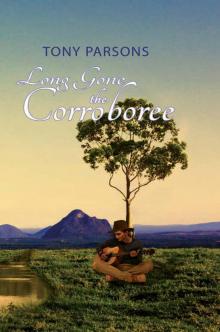 Long Gone the Corroboree
Long Gone the Corroboree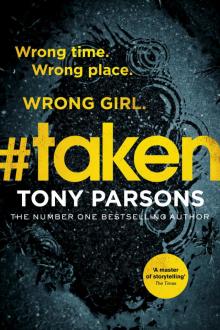 #taken
#taken The Family Way
The Family Way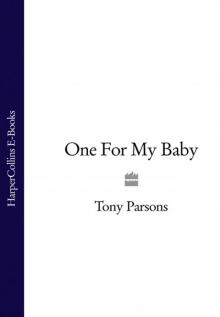 One For My Baby
One For My Baby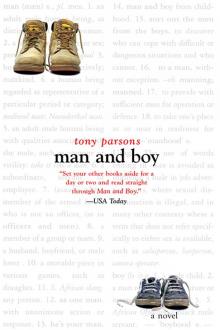 Man and Boy
Man and Boy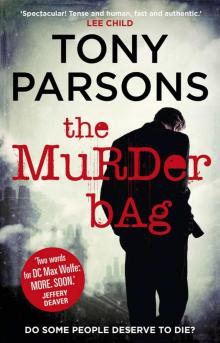 The Murder Bag
The Murder Bag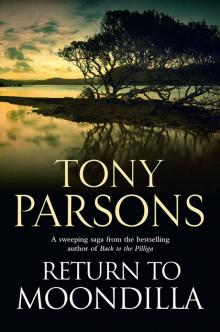 Return to Moondilla
Return to Moondilla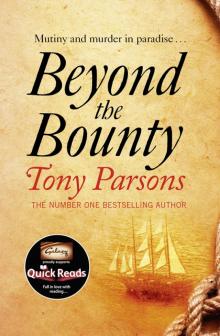 Beyond the Bounty
Beyond the Bounty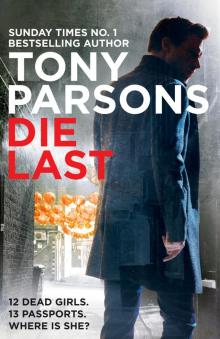 Die Last
Die Last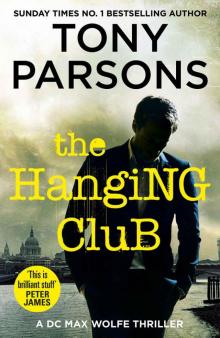 The Hanging Club (DC Max Wolfe)
The Hanging Club (DC Max Wolfe)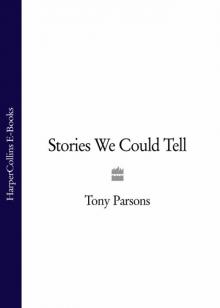 Stories We Could Tell
Stories We Could Tell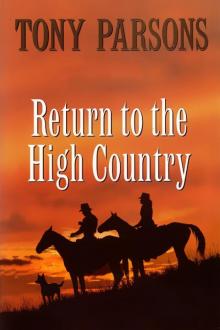 Return to the High Country
Return to the High Country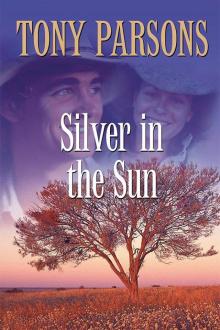 Silver in the Sun
Silver in the Sun My Favourite Wife
My Favourite Wife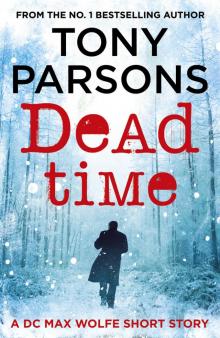 Dead Time
Dead Time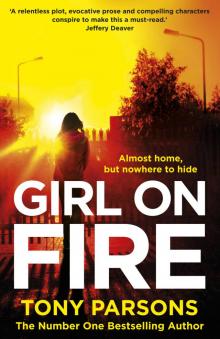 Girl On Fire
Girl On Fire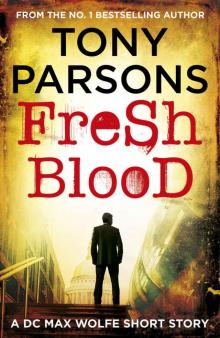 Max Wolfe 02.5 - Fresh Blood
Max Wolfe 02.5 - Fresh Blood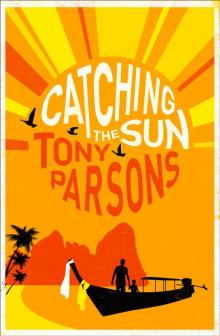 Catching the Sun
Catching the Sun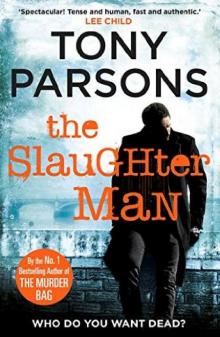 The Slaughter Man
The Slaughter Man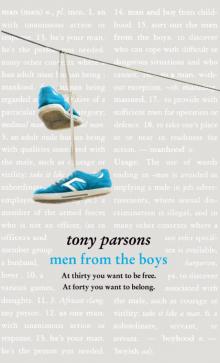 Men from the Boys
Men from the Boys Man and Wife
Man and Wife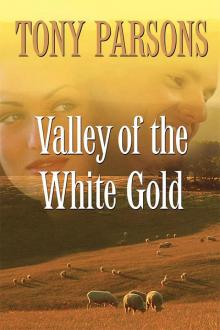 Valley of the White Gold
Valley of the White Gold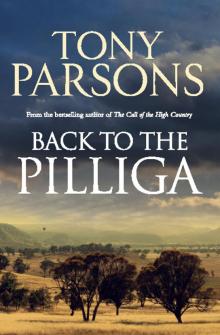 Back to the Pilliga
Back to the Pilliga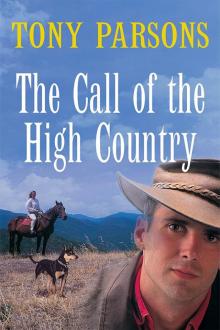 The Call of the High Country
The Call of the High Country Girl On Fire_DC Max Wolfe
Girl On Fire_DC Max Wolfe